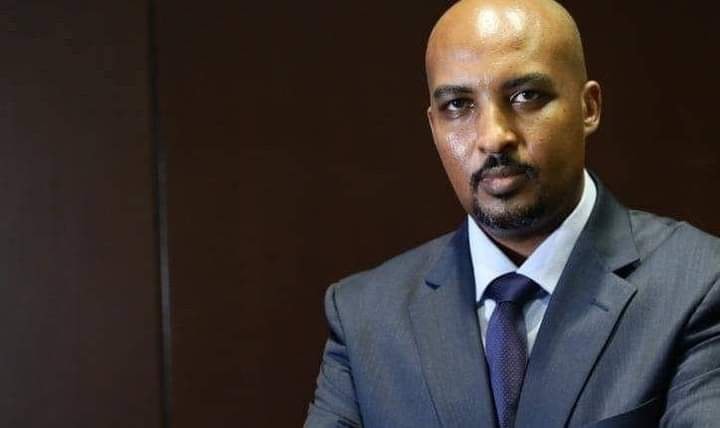Eastern Sudan Civil Forces calls on warring parties to keep the region ‘safe’

Saleh Ammar, the spokesperson for the Eastern Sudan Civil Forces alliance, and member of Tagadom Executive Office (Photo: Supplied)
The Eastern Sudan Civil Forces Alliance yesterday renewed its call on the warring Sudan Armed Forces (SAF) and the paramilitary Rapid Support Forces (RSF) not to transfer the war to the East in order to keep it a safe haven for civilians.
In a press statement yesterday, the spokesperson for the Eastern Sudan Civil Forces alliance, former Kassala Governor Saleh Ammar, said that the alliance “is following the developments of the situation in the East and the violations and illegal measures initiated by the de facto authority led by Gen Abdelfattah El Burhan”.
The RSF’s taking control of El Gezira in central Sudan in mid-December, after only four days of fighting with the SAF, sparked great fear among the people in the areas still considered ‘safe. The authorities in eastern and northern Sudan called for the arming of civilians.
The statement laments the growing insecurity in eastern Sudan (Red Sea state, Kassala, and El Gedaref), referring to a curfew imposed in Kassala “from 20:00 in the evening,” and to “masked gunmen from the brigades of the Al Bashir regime raiding gatherings and terrorising people without justification” in the city. “More dangerous is the significant increase in the distribution of weapons to popular groups loyal to the authorities.”
In El Gedaref, where a curfew keeps people at home from 18:00 until 6:00, the authorities are forming “popular resistance committees” to fight the RSF in case they invade the city. A large number of markets and gathering places are closed, including the mobile telephone complex, motorcycles have been confiscated, and dozens of people have been detained.
The statement mentions six points of importance to prevent the current situation from “descending into chaos”:
The Sudanese people and the world are waiting for Lt Gen Abdelfattah El Burhan to meet with RSF Commander Mohamed ‘Hemedti’ Dagalo, to reach “an urgent agreement to stop the war.”
The warring parties should “not transfer the war to the east, so it will remain a safe region for all the people of Sudan to take refuge in and through which the movement of goods, humanitarian aid, and travel can flow unhampered”.
The Eastern Sudan Civil Forces alliance holds El Burhan and the SAF commanders fully responsible for the decision to arm civilians, “which in fact means an official obituary for a nation whose security and arms monopoly are the basis for its legitimacy and justifies its existence”.
The detention campaign, the closure of markets, imposing of curfews, “and all other violations that disproportionately affect the poorest and most vulnerable segments of society” must stop. “We appeal to human rights groups and organisations to follow up and document these violations and put pressure [on the authorities] to stop them.”
The alliance further requests “the military forces that are gathering in the East to leave the populated areas”, as it “is against the law and immoral to use civilians as human shields”.
The sixth and last point concerns “the state of terror and confusion that afflicts our people in the East”. They are not only affected by the possibility of an RSF invasion into the region but also by the terrorism and intimidation, and the distribution of weapons to the tribes supervised by the SAF”.
Ammar assures the eastern Sudanese “that we are working with all our energy to protect the region from war and to reach peace in the entire Sudan.
“We affirm that all citizens have the right to defend themselves and their property in case of an attack. Everyone has the right to form committees in their neighbourhood for this purpose, but we are against the distribution of weapons and the formation of militias, which leads to disastrous results that will be larger than any other danger,” the statement concludes.
The Eastern Sudan Civil Forces spokesperson told Radio Dabanga in December that the alliance is cooperating with the Civil Democratic Forces (Tagaddum), chaired by former PM Abdallah Hamdok. “We agreed to call on the warring parties to protect civilians in the areas under their control, especially in El Gezira and Darfur, to respect all rights to human dignity and to stop the waves of displacement and ethnic violence.”
Last week, Radio Dabanga reported about the “fragile security situation” in eastern Sudan. The Beja Conference’s former secretary general, El Amin Shangerai, also warned of “security threats that may cause the situation to burst, one of them being the presence of a large number of leaders of the former Al Bashir regime in the region, who are mobilising the eastern Sudanese to fight alongside the army”.
Shangerai also said he is “extremely worried about the emergence of separatist tendencies among the people of eastern Sudan, while they now, more than ever, should be patriots”.
* Saleh Ammar is a member of the Beni Amer tribe, considered by some to comprise a subgroup of the Beja people. They speak Tigre, not Beja. In July 2020, he was appointed as governor of Kassala by the democratic government of Hamdok, to the dismay of Beja leaders in the region. A month later, fierce fighting broke out between Beja and Beni Amer tribesmen in Kassala. Though Ammar proposed a plan “to achieve peace and social coexistence in eastern Sudan”, Hamdok decided to dismiss him in October. Ammar at the time considered his dismissal “a surrender to the blackmailing” of affiliates of the ousted Al Bashir regime.











 and then
and then